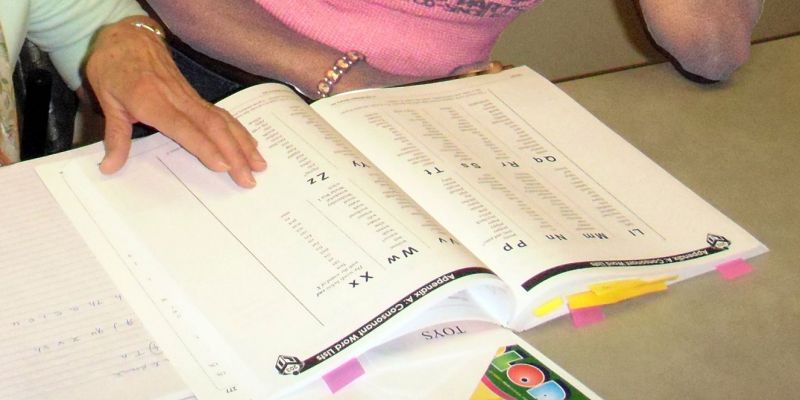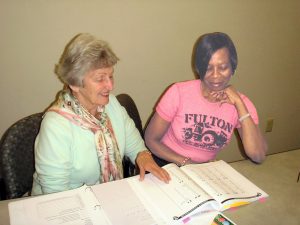
Imagine you can’t. Imagine that you can’t read road signs, a menu, a book or newspaper, a shopping list, an email or this Gazette. Imagine you can’t write appointments on a calendar, read a medicine label, balance a checkbook, write down directions, fill out a job application …the list is endless. Then imagine that those hieroglyphics suddenly begin to make sense!
Literacy is something everyone reading this article takes for granted, yet many in our community struggle with it. The reasons are complex and the outcome can be devastating. Ulster Literacy Association, a non-profit organization established in Kingston in 1981, seeks to address this need by training volunteer tutors and bringing them together with adult students who have the courage to seek help. Ulster Literacy offers free tutoring in small groups or one-to-one settings, in public places such as libraries. The students may be studying English as a second language, or speak English but for one reason or another have missed the opportunity to learn to read and write.
The Gardiner Library hosted Ulster County Literacy last August; nine volunteers completed the 18-hour certification course before being paired with students. The workshops included methods and materials, cultural considerations, and discussions concerning typical needs of those requesting assistance.

Ginny Gravatt and student Francilla
Two of our Gardiner volunteers are Laura Rose and Ginny Gravatt. They both work with their students for an hour each week. Laura feels she has “lucked out” with her student, who is fluent in English but needs help in reading and writing. “He came to me with many of the basics in place; he’s already been in the program for two or three years and his verbal skills are excellent.” In October he was reading short sentences and paragraphs. Now he’s reading simple stories. “English is a confusing language. For example, how do you pronounce GH? You can’t sound it out except in “ghost”. It sounds like F in “enough”, and is silent in “night”. My student asks why it doesn’t make more sense and isn’t easier. I tell him it was done on purpose to plague him…and then we laugh and keep reading.” Laura is very proud of him as he is making excellent progress. She moved back to this area in 1999 after retiring from teaching social studies in Brooklyn, taught history part time at Marist and then began selling real estate. When the market got busy she gave up Marist, but missed teaching. “When the Library asked for volunteers, I knew it would be something I’d be happy doing.”
Ginny Gravatt, a retired travel agent, is glad to have the free time “to give back to society by helping somebody who needed it.” She also looked forward to meeting other people in the community with the same interests. Her student, from St. Lucia, is now a nanny for a family in Highland. Francilia had some schooling in St. Lucia. The students were taught in English, but the skills of reading and writing were not encouraged and they did not become proficient. By the time she was 14 she no longer attended classes. Francilia made sure her children were taught to read and write, hiring tutors for them so they would learn properly.
“We have been together once a week since January,” Ginny says. “Her reading has improved. It is exciting to hear her say words we have worked on and know the meaning. She told me that she wants to be able to sit down in a restaurant and read the menu, a new challenge that will be met! Francilla is a willing student, tries her best during our sessions and practices the lessons at home when her busy job allows her the time.
I look forward to our meetings and hope that my efforts can make a difference for her. It is gratifying to be part of this large program bringing new-found freedom with each new skill that is learned.”
The Friends of the Library have made a generous donation to the library to purchase educational materials for the program. Next spring the library will host another literacy volunteer training program. Also, our librarian, Nicole Lane, and literacy volunteer Nancy Egan plan to visit the local farms to see if there would be interest in setting up a program in which tutors would go to the farms and work with a migrant population as well as year round farmer workers. It says much for all involved that out of a training class of nine volunteers at our library, eight completed the program and are currently tutoring students!
